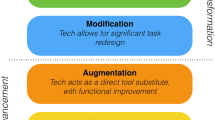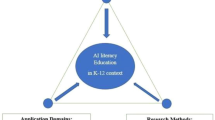Abstract
The OECD Programme for International Student Assessment (PISA), launched by governments of the Organisation for Economic Co-operation and Development (OECD) in 1997, aims at assessing some of the key competencies that contribute to the success of 15-year-old individuals, on a regular basis and within an internationally accepted framework. PISA seeks to provide a basis for policy dialogue and for collaboration in defining and implementing educational goals, in innovative ways that reflect judgements about the skills that are relevant to adult life. PISA defines competence as the ability to successfully meet complex demands in varied contexts through the mobilisation of psychosocial resources, including knowledge and skills, motivation, attitudes, emotions, and other social and behavioural components. Measuring and comparing competencies across languages and cultures is a difficult challenge and is being pursued by PISA progressively. PISA focused its first three assessments on literacy skills, defined as the capacity of young adults to access, manage, integrate and evaluate information, to think imaginatively, to hypothesise and discover, and to communicate their thoughts and ideas effectively. The reasoning behind shifting the emphasis from assessing whether students can reproduce what they have learned towards whether they can extrapolate from what they have learned and apply their competencies in novel situations, derives from the nature of knowledge and skills required in modern life. For example, the tasks that can be solved through simple memorisation or with pre-set algorithms are those that are also easiest to digitise, automatise and offshore, and will thus be less relevant in a modern knowledge society. Since there is no overarching cross-national and cross-cultural agreement on what fundamental competencies 15-year-olds should possess, an international assessment such as PISA can only capture a selection of competencies. Moreover, since various methodological constraints limit the nature of competencies that are currently amenable to large scale assessment, PISA cannot capture the entirety of competencies that will make young people successful. However, the findings presented in this article suggest that the competencies that PISA does assess are highly predictive for the future success of students. In addition, PISA provides policy makers and practitioners with useful tools to improve quality, equity and efficiency in education, by revealing some common characteristics of students, schools and education systems that do well. In a modern world, comparative assessments are an essential tool for educational improvement and research shows that the existence of standardised assessments and examinations is one of the most powerful predictors for the success of an education system. That is not hard to understand, because without such assessments, all students, schools and education systems look the same, it is impossible for teachers and school administrators to detect institutional and systemic strengths and weaknesses, and to support and intervene where expectations are not met. Without reliable and comparable information on learning outcomes, teachers and governments alike rely on input-based incentives and policies that are all too often mirrored in large quality variation between schools as well as a strong dependency between learning success and the socio-economic context of students and schools. Last but not least, it is important to keep in mind that the absence of the reading, mathematical and scientific competencies measured by PISA does not automatically imply the presence of all those important competencies that have not been measured.

Similar content being viewed by others
References
Autor, D., Levy, F., & Murnane, R. J. (2003). The skill content of recent technical change. Quarterly Journal of Economics, 118, 1279–1334.
Knighton T., & Bussière, P. (2006). Educational outcomes at age 19 associated with reading ability at age 15. Ottawa: Statistics Canada.
OECD and Statistics Canada. (2000). Literacy in the information age. Paris: OECD, Ottawa: Statistics Canada.
OECD (2004). Learning for tomorrow’s world––first results from PISA 2003. Paris: OECD.
OECD (2006). Assessing scientific, reading and mathematical literacy––a framework for PISA 2006. Paris: OECD.
Woessmann, L. (2003). “Central exit exams and student achievement––international evidence” in Peterson and West, No child left behind.
Author information
Authors and Affiliations
Corresponding author
Rights and permissions
About this article
Cite this article
Schleicher, A. Can competencies assessed by PISA be considered the fundamental school knowledge 15-year-olds should possess?. J Educ Change 8, 349–357 (2007). https://doi.org/10.1007/s10833-007-9042-x
Published:
Issue Date:
DOI: https://doi.org/10.1007/s10833-007-9042-x




